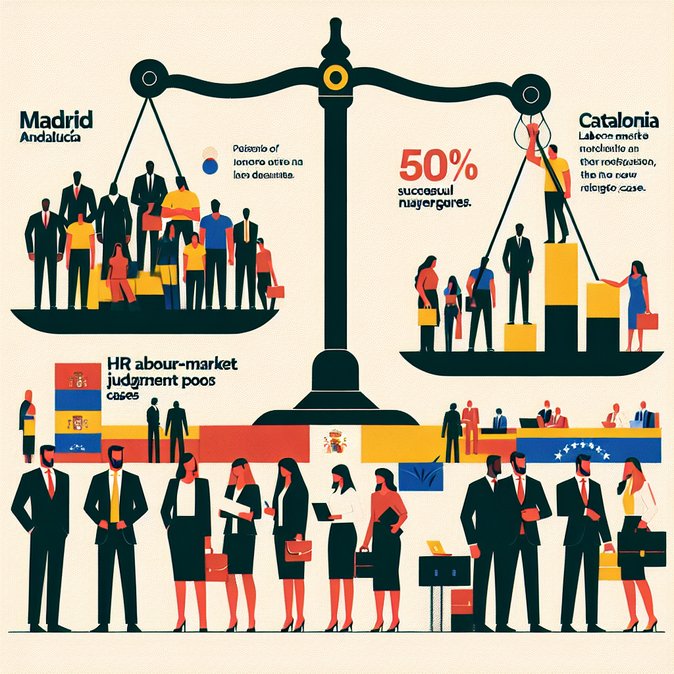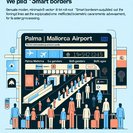
Spain’s Ministry of the Interior has processed 121,990 applications for international protection between January and October 2025, according to provisional figures released on 11 November. Venezuelan nationals account for 58 % of the caseload (71,241 files), followed by Mali (13,121), Colombia (12,829), Peru (3,169) and Senegal (3,116). The data confirm Spain’s position as one of Europe’s busiest asylum jurisdictions and illustrate shifting migration patterns: Madrid is attracting both Latin-American migrants fleeing instability and Africans arriving via the Atlantic route.
The approval rate remains relatively high: more than 61,000 cases—just over 50 %—ended in a positive decision or humanitarian status, well above Spain’s 18 % recognition rate in 2024. Officials attribute the uptick to streamlined triage at Madrid-Barajas airport and the digitalisation of appointments introduced in April, which cut average first-interview waiting times from eight months to four.
![Spain logs almost 122,000 asylum claims in first ten months of 2025, half approved]()
For employers, the numbers matter because successful applicants quickly enter the labour market. Under Royal Decree-Law 16/2022, recognised refugees can work immediately, while those in humanitarian or subsidiary protection may apply for work authorisation after six months. Sectors facing acute shortages—hospitality, agrifood and elder care—are already courting qualified Venezuelan and Colombian newcomers, so corporate HR should watch regional labour-office bulletins for tailored recruitment programmes.
Regionally, the Community of Madrid absorbed the largest share (36,208 petitions), with Andalucía (17,118) and Catalonia (14,176) not far behind. Companies with distributed workforces should anticipate uneven processing queues and plan mobility timelines accordingly. The Interior Ministry signalled that it will reallocate staffing resources to Seville and Barcelona asylum offices before year-end, a move expected to ease backlogs in those hubs.
The release of the figures also feeds into national political debate: opposition parties argue that high approval rates risk acting as a ‘pull factor’, while the coalition defends Spain’s “humanitarian vocation” and points to the positive demographic impact. For global-mobility teams, the take-away is clear: Spain continues to open its labour market to a significant pool of protection beneficiaries, adding to the talent pipeline but also requiring careful compliance with evolving hiring rules.
The approval rate remains relatively high: more than 61,000 cases—just over 50 %—ended in a positive decision or humanitarian status, well above Spain’s 18 % recognition rate in 2024. Officials attribute the uptick to streamlined triage at Madrid-Barajas airport and the digitalisation of appointments introduced in April, which cut average first-interview waiting times from eight months to four.

For employers, the numbers matter because successful applicants quickly enter the labour market. Under Royal Decree-Law 16/2022, recognised refugees can work immediately, while those in humanitarian or subsidiary protection may apply for work authorisation after six months. Sectors facing acute shortages—hospitality, agrifood and elder care—are already courting qualified Venezuelan and Colombian newcomers, so corporate HR should watch regional labour-office bulletins for tailored recruitment programmes.
Regionally, the Community of Madrid absorbed the largest share (36,208 petitions), with Andalucía (17,118) and Catalonia (14,176) not far behind. Companies with distributed workforces should anticipate uneven processing queues and plan mobility timelines accordingly. The Interior Ministry signalled that it will reallocate staffing resources to Seville and Barcelona asylum offices before year-end, a move expected to ease backlogs in those hubs.
The release of the figures also feeds into national political debate: opposition parties argue that high approval rates risk acting as a ‘pull factor’, while the coalition defends Spain’s “humanitarian vocation” and points to the positive demographic impact. For global-mobility teams, the take-away is clear: Spain continues to open its labour market to a significant pool of protection beneficiaries, adding to the talent pipeline but also requiring careful compliance with evolving hiring rules.





